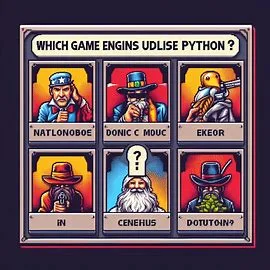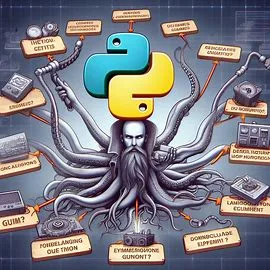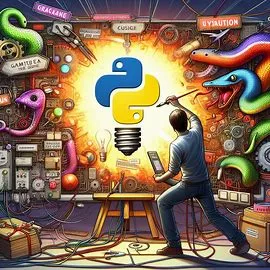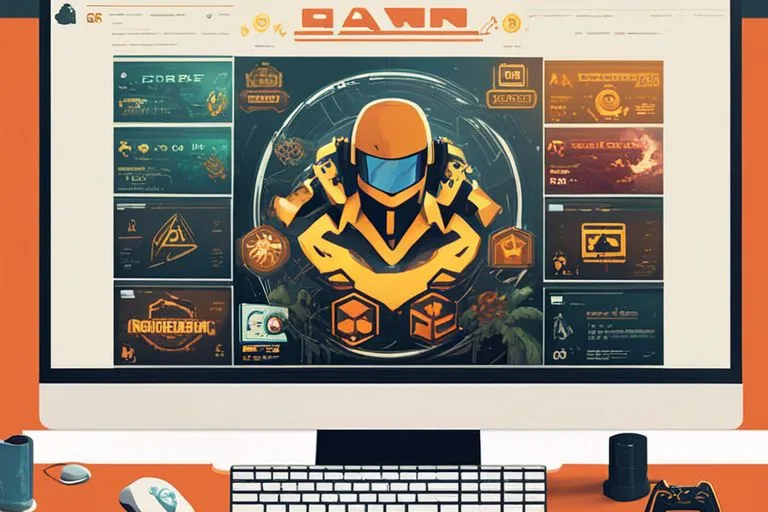Which Game Engines Utilize Python?
Many aspiring game developers choose Python as their programming language of choice due to its simplicity, versatility, and readability. However, not all game engines are compatible with Python. In this blog post, we will explore some of the top game engines that utilize Python, highlighting their features and capabilities to help you make an informed decision for your next game development project.
While discussing game engines, it is crucial to have a clear understanding of what they entail. A game engine is a software framework designed for the development and creation of video games. It provides developers with a set of tools, features, and functionalities to build, design, and deploy games efficiently.

Definition and Core Functions of a Game Engine
Game engines serve as the backbone of game development, offering imperative capabilities such as rendering graphics, managing audio, physics simulations, scripting, artificial intelligence, networking, and more. These core functions work together to provide developers with a comprehensive platform to bring their game ideas to life.
When choosing a game engine, developers need to consider factors like scalability, performance, ease of use, and compatibility with different platforms. The right game engine can significantly impact the development process and ultimately determine the success of a game.
The Importance of Scripting Languages in Game Development
Definition: Scripting languages play a critical role in game development by allowing developers to automate tasks, customize behavior, and implement game logic without the need for low-level programming. Python, in particular, has gained popularity in the gaming industry due to its simplicity, versatility, and powerful capabilities.
To create dynamic and interactive gameplay experiences, developers leverage scripting languages to add functionality, create game mechanics, and design unique features. The flexibility and agility offered by scripting languages enable developers to iterate quickly, test ideas, and optimize game performance effectively.
Python-Powered Game Engines
Clearly, Python has made its mark in the world of game development by being an integral part of several game engines. Let’s explore some of the popular game engines that utilize Python for game development.

Blender Game Engine
Game development enthusiasts have long been familiar with Blender, the open-source 3D creation suite. What sets Blender apart is its integrated game engine, known aptly as the Blender Game Engine. This engine allows developers to create interactive 3D content with Python scripting for game logic.
By leveraging Python in the Blender Game Engine, developers can perform a wide array of tasks from creating game mechanics to designing artificial intelligence.
Panda3D
Blender’s Python integration extends beyond the Blender Game Engine, as it also supports game development through Panda3D. Panda3D is a powerful 3D game engine that allows for rapid development of games using Python and C++. The engine provides a rich set of features for rendering, physics, sound, and more, all accessible through Python scripting.
Panda3D stands out for its ease of use and flexibility in creating 3D games. Developers can quickly prototype ideas and create complex game systems with the help of Python scripting. The engine’s support for both Python and C++ makes it a versatile choice for game development projects of varying scales.
Embedding Python in Other Game Engines
All major game engines have their own scripting languages, but some also allow developers to embed Python for additional flexibility and functionality. Let’s explore how Python is utilized in two of the most popular game engines: Unity and Unreal Engine.
Unity and PyUnity
Embedding Python in Unity is made possible through a package called PyUnity. This integration allows developers to leverage the power of Python within the Unity environment, enabling them to write scripts and automate tasks using Python’s intuitive syntax.
With PyUnity, developers can access Unity’s API, create custom tools, and even implement machine learning algorithms using popular Python libraries like TensorFlow.
Unreal Engine and Python
Unity is not the only game engine that supports Python integration. Unreal Engine also offers a way to embed Python scripts for game development. By using the Unreal Python Plugin, developers can write scripts that interact with Unreal Engine’s API, create custom editor tools, and automate various aspects of game development.
This integration provides developers with the flexibility to combine the power of Unreal Engine’s graphical capabilities with Python’s versatility.
While Python integration in Unreal Engine offers a wide range of possibilities, it’s important to note that the integration may require additional setup and configuration compared to using the engine’s native scripting language, Blueprints.
However, the benefits of leveraging Python’s extensive library support and easy syntax make it a valuable addition to Unreal Engine’s development workflow.
Python for Educational Game Development
Your journey into educational game development with Python opens up a world of creativity and learning opportunities. Python, a versatile and beginner-friendly language, empowers educators and students alike to create engaging games that enhance the learning experience.
How Python Facilitates Learning Through Game Creation
To begin with, Python’s simple syntax and readability make it an ideal choice for beginners delving into game development. The language’s straightforward structure allows educators to focus on teaching game design concepts rather than getting bogged down in complex code. By using Python, students can quickly see the results of their efforts, fostering a sense of accomplishment and motivation to continue learning.

Tools and Resources for Educators and Beginners
For educators and beginners exploring Python for educational game development, there are a plethora of tools and resources available. Platforms like Pygame and Arcade provide libraries and frameworks specifically designed for creating games.
Additionally, online tutorials, forums, and communities offer support and inspiration for those launching on their game development journey.
Creation of educational games with Python not only reinforces programming concepts but also cultivates creativity, problem-solving skills, and collaboration among students. By harnessing the power of Python, educators can create engaging games that make learning enjoyable and impactful.
Scripting Game Logic with Python
Not only is Python a popular choice for game development and scripting in various game engines, but it also offers a powerful way to implement game logic. Python’s versatility, readability, and ease of use make it an excellent language for scripting complex game behaviors.
The Simplicity and Efficiency of Python Scripts
One of the key advantages of using Python for scripting game logic is its simplicity. Python code is clean, concise, and easy to understand, making it accessible to both beginners and experienced programmers. This can significantly reduce development time and debugging efforts, allowing game developers to focus on creating enjoyable gameplay experiences.
Additionally, Python’s efficiency in handling data structures and algorithms makes it a suitable choice for implementing various game mechanics. Whether it’s managing in-game resources, controlling AI behavior, or handling player input, Python scripts can streamline these processes and improve overall game performance.
Comparing Python Scripting to Other Languages
With Python being a widely used language in the game development community, it’s important to understand how it compares to other scripting languages commonly used in game engines. Below is a comparison table detailing the key differences between Python scripting and other languages:
| Python | Other Languages |
| Readable and concise syntax | Variability in syntax and readability |
| Extensive library support | May require additional libraries for similar functionality |
For instance, when comparing Python scripting to C++ or C#, Python’s dynamic typing and simplified syntax can make it easier to prototype and iterate game features quickly. However, this flexibility comes with a trade-off in terms of runtime performance, as statically-typed languages like C++ may offer better optimization for resource-intensive tasks.
| Python | Other Languages |
| Quick development and prototyping | Better optimization for performance-critical tasks |
| Dynamic typing for flexibility | Static typing for enhanced error-checking |
Python in the Future of Game Development
The landscape of game development is constantly evolving, with technology playing a pivotal role in shaping the future of the industry. Python, as a versatile and powerful programming language, is expected to continue its prevalence in game development due to its ease of use, readability, and vast community support.
The trend towards utilizing Python in game engines is likely to grow as developers seek efficient and flexible solutions to create high-quality games.
Python is well-positioned to adapt to the changing demands of the gaming market, with its scalability and cross-platform capabilities making it an ideal choice for both indie developers and AAA studios. As technology advances and new trends emerge, Python’s adaptability will enable developers to streamline workflows, prototype ideas quickly, and create innovative gaming experiences.
Emerging Engines and Python’s Role
Pythons
Leading the charge in leveraging the power of Python for game development are emerging game engines that prioritize flexibility and performance. These engines are incorporating Python to empower developers to create dynamic and engaging games while minimizing development time and resources.
Game developers utilizing Python in these emerging engines can take advantage of the language’s extensive libraries and tools, accelerating the development cycle and unlocking new possibilities for game design and interactivity. Python’s role in these engines is set to revolutionize the way games are created, fostering a more accessible and innovative approach to game development.
Conclusion
Conclusively, Python is a versatile and highly sought-after programming language that is utilized in several game engines. Popular options such as Pygame, Panda3D, and Godot Engine make use of Python to provide developers with efficient tools and resources to create engaging and high-quality games. With its user-friendly syntax and extensive library support, Python continues to be a top choice for game development.
By exploring the various game engines that utilize Python, developers can uncover a range of options to suit their specific needs and preferences.
Whether creating 2D games with Pygame or developing complex 3D projects with Panda3D, Python offers a flexible and powerful toolkit for game development.
With continued advancements in technology and a growing community of Python developers, the future looks bright for Python-powered game engines.

